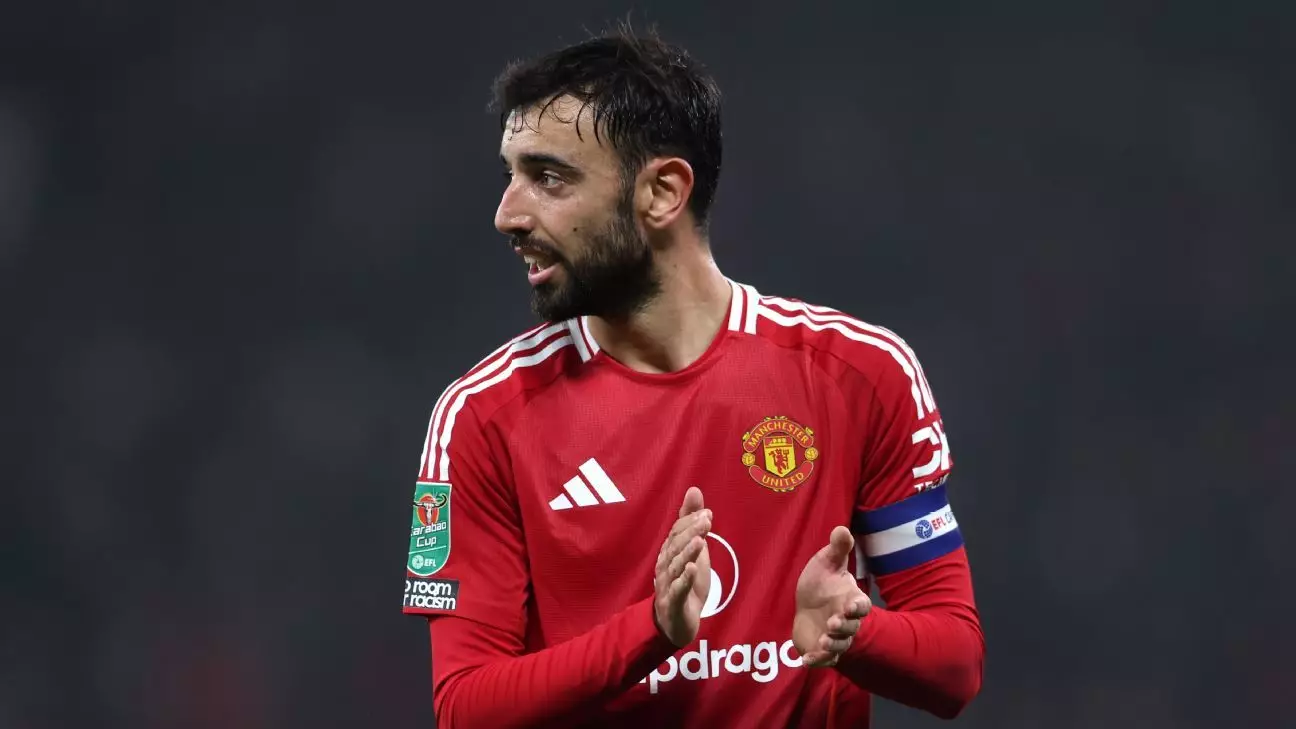The abrupt departure of Erik ten Hag from Manchester United has stirred deep emotions within the club and its players. In a candid moment, Bruno Fernandes, the team’s captain, expressed his heartfelt apologies to Ten Hag, acknowledging the complex dynamics that led to the managerial change. This situation presents a case study not only for the players but for the entire football community, underscoring the delicate balance between player performance and managerial stability.
With the team’s recent performance following Ten Hag’s dismissal — a 1-1 draw against Chelsea in the Premier League — even the objective outcomes of games fail to encapsulate the turmoil rippling through the locker room. Fernandes’s admission that he and his teammates hold some responsibility for Ten Hag’s fate reveals an essential truth about football: the success or failure of a manager is often a mirror reflection of the players’ commitment and effectiveness on the pitch.
Players as Contributors to Leadership Challenges
Fernandes’s comments during the post-match interview resonate with a crucial acknowledgment: it is often easier for clubs to part ways with a manager than to overhaul an entire squad. This sentiment serves as a stark reminder of the reality in football, where players can sometimes fall short of their potential and contribute to a toxic environment — a trend that managers like Ten Hag might struggle to counteract.
The Portuguese midfielder’s honesty about the challenges he personally faced, including a decline in goal-scoring, lays bare the intimate tie between player performance and managerial pressure. When the team’s performance dips, the spotlight inevitably flashes on the manager, but the internal dynamics shared by Fernandes highlight that the players’ roles are equally critical.
The appointment of Ruud van Nistelrooy as the caretaker manager comes with its own set of challenges. While he attempts to steady a ship rocked by managerial instability, the players must reflect on their performances and collectively elevate their games. Van Nistelrooy’s assertion that the week has been a “rollercoaster of emotions” underscores the emotional toll of such a transition. It’s not just about winning games but also about healing the collective psyche of a team that has witnessed the departure of their coach amid unfulfilled expectations.
The psychological impact of Ten Hag’s exit looms large over the playing squad. Each player is now faced with the necessity to introspect and ask themselves what they could have done differently to prevent this outcome. Van Nistelrooy’s call for players to “look in the mirror” highlights the importance of self-assessment in a time of upheaval. It serves as a critical juncture for the squad, pushing them to either rise to the occasion or descend further into disarray.
As Manchester United prepares for a new era under the leadership of Rúben Amorim, uncertainties also hang over the futures of both Van Nistelrooy and the squad. Amorim’s intention to bring in his own coaching staff signifies a clear shift in strategy and approach, which could lead to a significant transformation within the club.
Van Nistelrooy remains hopeful about this future, as he expressed his willingness to support Amorim in his quest to restore Manchester United to its former glory. The cooperative spirit he describes is vital, as successful transitions often hinge on successful collaborations between outgoing and incoming staff. There’s a mutual goal at stake — the restoration of Manchester United to its competitive stature in both domestic and European football.
Ultimately, the events surrounding Erik ten Hag’s departure and the subsequent reactions from players like Bruno Fernandes shed light on the broader theme of resilience in professional sports. This turbulent time reflects the need for stakeholders within the club — from management to players — to learn, adapt, and recalibrate their approaches. As Manchester United embarks on this transformative journey, the hopes of its fanbase hinge on the team’s ability to respond not just to adversity, but also to evolve from it. The coming weeks will be crucial, not only for results but for the carefully knit fabric of unity and responsibility that must thrive if the club seeks to reclaim its historic place in football’s pantheon.

Leave a Reply